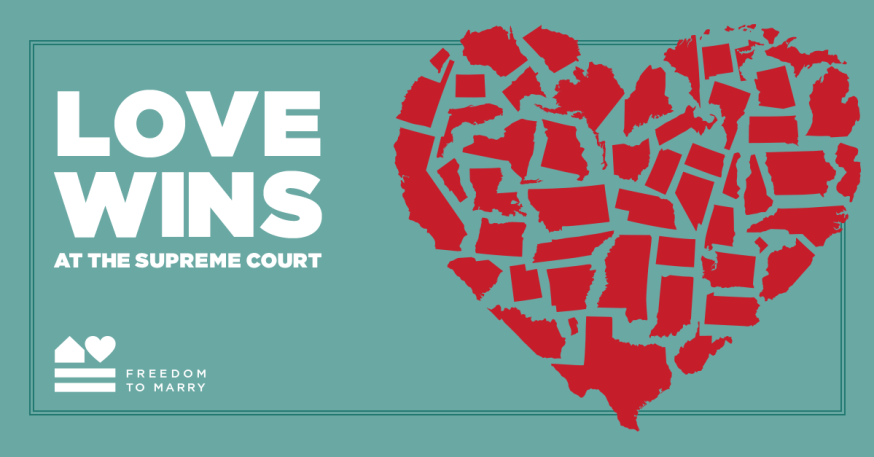
I heard Desmund Tutu (and maybe Martin L. King Jr. too) once say, “The arc of history bends toward justice.” Those words echoed in my mind when I was recently in the cast of “8”, listening to the words of the two lawyers from opposing political parties who teamed up to take on California’s ban on gay marriages, Proposition 8, to federal court. As I listened to the words from the court records during our one Boulder performance on December 6, I never dreamed that the Supreme Court would announce the very next day that they would hear arguments challenging both Proposition 8 and the federal Defense of Marriage Act. “It’s happening so fast,” I said to myself. Maybe I will live long enough to see my gay sons legally marry in Colorado!
What is the argument for the freedom to marry? As Theodore Olson, one of the lawyers stated federal court: “I believe, Your Honor, that there is a political tide turning. I think that people’s eyes are being opened. People are becoming more understanding and tolerant. The polls tell us that. That isn’t any secret”. He goes on to say that this case is going to be in a court where a judge is going to have to depend on more than public opinion; he will need to decide on a reason with real evidence that marriage equality does or does not do actual harm to society. He proclaims that ”it is not acceptable under our Constitution to deprive any citizens basic human rights that are guaranteed in our Constitution.” He says to the judge: “You cannot say, ‘We are going to take away the constitutional right to liberty , privacy, association, and sexual intimacy that we already tell you you have!’ So that case will now be heard by the Supreme Court sometime in April. And we wait breathlessly for the next historic moment.
Lest we feel too confident…… we still have Utah…Missouri,…Montana… North Carolina. My weekend in Hamilton, Montana, at the PFLAG Pacific Northwest Regional Conference taught me so much about the disparities of progress toward LGBT equality. One lesbian member of the local chapter told me about her recent horrendous experience speaking to the Hamilton Board of Education. When she requested that sexual orientation be included in their non-discrimination policy, she was met by a barrage of bigoted comments from both Board members (four out of six are Tea Party members) and audience of ultra-conservatives. Instead of common agreement about bully-proofing that all students should be safe in school, she heard comments such as: “They don’t deserve protection—those gays are going to burn in Hell anyway. Let them take what they get!” Needless to say, she was devastated by the ugly prejudice but determined to return another day.
I was in North Carolina this past spring just a week before the vote about including the ban on same-sex marriage in their Constitution. I read the Charlotte newspaper’s front page and saw that special feature highlighted the words of Franklin Graham, son of Billy Graham, who spoke of the “sanctity of marriage” and “disobeying God’s commands.” Other articles that were supportive of gay marriage were buried on back pages. One brave progressive Baptist minister wrote that the issue behind the vote was really about the separation of church and state, established by our Founders. Religious beliefs should not govern state policies. Didn’t our recent election cycle support that claim?
At the same time in April, the United Methodist Church met in world-wide General Conference in Tampa to once again refuse to take out anti-gay policies from their Book of Discipline which governs church polity. I was moved to tears when the ministers in our own UMC in Boulder, Pat Bruns and Joe Agne, announced soon after the Tampa meetings that they were joining with other UM clergy across the country to defy church policy and agree to perform same-sex ceremonies in our church.
So there is room for hope. This year we heard our first sitting President take a public stand on marriage equality. After thirty-two state over the past 20 years have banned same-sex marriage, this year in November, four states voted either to preserve the right to marriage equality in Maine or to vote against a ban in Maryland, Minnesota and Washington. Yes, the tide is turning. The arc of history is bending closer to justice; it is made up of historic moments that create eventual change.